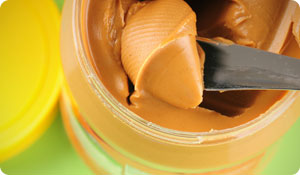
If you suffer from food allergies and asthma, you may wonder if the two conditions could be related. In fact, it's relatively rare for asthma to actually be caused by an allergic reaction to something you eat or drink. It's more likely to be prompted by seasonal triggers, illnesses or other types of reactions to things in the environment.
The Combination of Food Allergies and Asthma is Rare
In a small number of cases, though (perhaps five percent or less), food allergies and asthma do have a direct relationship. When such a reaction occurs, it can happen right after you consume a food to which you're allergic, or it can be delayed for as long as several hours. Such a varied time span can make the connection difficult to confirm.
Symptoms of a Food Allergy and Asthma
Please review some of the symptoms that might occur when you experience asthma that's caused by an allergic reaction:
- Wheezing
- Coughing
- Shortness of breath
- Watery or tearing eyes
- Runny nose
- Itchy mouth
Risk Factors for Food Allergies and Asthma
Perhaps you sometimes experience these symptoms following meals but you aren't sure if a direct relationship really exists or if it's just a coincidence. There are a few important characteristics that people with food allergies and asthma share (listed below) and these can increase the odds that the two conditions are related.
- Your asthma symptoms started at a very young age.
- You notice wheezing consistently after eating certain foods.
- Your asthma medication doesn't effectively control your symptoms.
Foods to Beware
Some of the types of foods that can cause asthma symptoms, particularly in babies and young kids, are milk, eggs and peanuts. In addition, sulfites and other chemicals used in some foods can also trigger asthma. If you're sensitive to these ingredients, this means that you have to be on the lookout for it in products like wine, juices, prepared potatoes, dried fruits and shrimp.
It's also interesting to note that being allergic to certain foods in childhood can put you an increased risk to develop non-allergic asthma as an adult. People who're particularly vulnerable to this are those who developed an allergy to milk as a young child and also had accompanying eczema symptoms. Further, childhood allergies to eggs, peanuts and shrimp can also put you at increased risk for adult asthma symptoms.
When Asthma Increases Your Allergy Risk
In addition to food allergies causing asthma, it's important to note that asthmatics can be at increased risk for experiencing serious reactions to certain foods. In fact, some researchers believe that children with asthma have 14 times the risk of non-asthmatic children for a serious food allergy reaction to occur.
What You Can Do
When you think that food allergies could be prompting your asthma symptoms, it's a good idea to talk to your doctor about your concerns. While it may be challenging to prove that your asthma is truly induced by food allergies, it can help to narrow in on the cause by tracking your symptoms and doing some careful detective work. In addition, you can ask your doctor about performing a food challenge test. This consists of eating the food in question in the safety of a closely controlled setting in order to see how your body reacts.
You should also make sure to steer clear of the food completely. Also always follow your asthma action plan to manage your symptoms and to help you be prepared in case a serious reaction does occur.
Sources:
Act Against Allergy
http://www.actagainstallergy.com/aaa/14573-children-food-allergy-and-asthma.html
American Academy of Allergy, Asthma and Immunology
http://www.aaaai.org/patients/publicedmat/tips/foodallergy.stm
Current Opinion in Pulmonary Medicine
http://journals.lww.com/co-pulmonarymedicine/pages/articleviewer.aspx?year=2008&issue=01000&article=00004&type=abstract
National Asthma Education Programme
http://www.asthma.co.za/articles/ref13.htm





